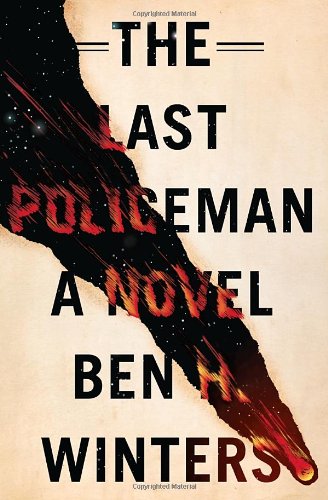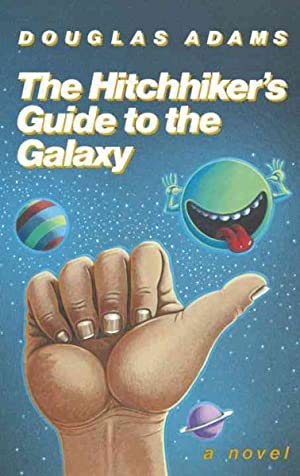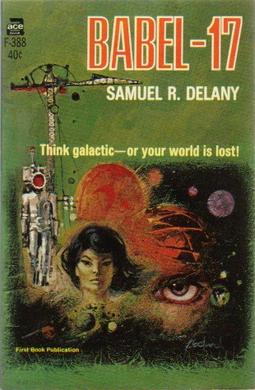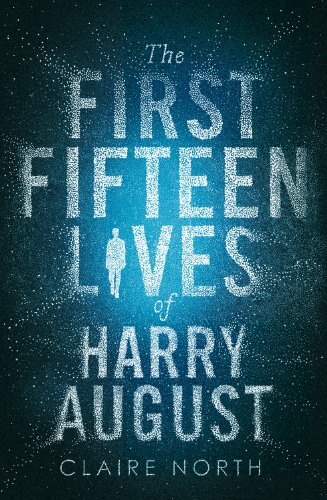|
A version of this post originally appeared on April 8, 2023.
All I knew of The Last Policeman (2012) was that it got a lot of acclaim. Also I figured it for a crime novel. There is a clue for this hypothesis hidden in the title. There's an asteroid coming toward the earth, though it's still several months from impact. Society is collapsing in fits and starts. Lots of people are choosing to check themselves out before impact, but the corpse in the McDonald's bathroom stall seems like a murder, and detective Henry Palace is determined to investigate it, even as the structures of law enforcement (like habeas corpus) disintegrate. I would have enjoyed this book more pre-pandemic, but I no longer need help imagining how people respond to global threat. I'm good. Still though, this is a decent way to spend your time: Police procedural, society under threat, noirish feel, mild science fiction. I especially recommend it for people who like a literary feel to their genre fiction. Peter Berkrot narrates the audio.
0 Comments
A version of this post originally appeared on April 1, 2023.
In anticipation of turning 42 next Thursday, I reread The Hitchhiker’s Guide to the Galaxy. As a young teen I found it hysterical, absurd humor mixed with running gags. Douglas Adams hit all the right chords when I was developing my sense of humor, and familiarity with Hitchhiker signified inclusion in a science fiction in-group, back when nerd fandom was more in the margins. It was like recognizing Led Zeppelin’s Lord of the Rings references, back before Peter Jackson made his movies, when obsessively listening to an album was the only way to learn lyrics. Knowing that the answer to life, the universe, and everything was 42 marked you as a special type of nerd. As an adult: the book is still funny. I frequently laughed out loud to Stephen Fry’s audiobook narration. And that’s all. There’s no depth. It’s a diverting story. I would still gladly suggest it for anyone wanting a laugh, especially a younger someone who would enjoy it as much as I did thirty years ago. But if you want speculative fiction with pathos and deep meaning in addition to laughs—well. I need to catch up on the Christopher Moore books I haven’t read yet, for starters. And it sounds like I’m talking myself into a re-read of Terry Pratchett’s Discworld series. A version of this post originally appeared on March 11, 2023.
Samuel R. Delaney is one of the pioneers of modern science fiction. He's garnered critical and popular success in his long career, an especially impressive achievement given his race. Black authors are still rare in science fiction, yet Delaney won his first Nebula in 1966. Wanting to correct this gap in my SF knowledge, I started with Babel-17, in no small part because it is narrated by Stefan Rudnicki, whose voice improves any story. In this space opera, the main character is a pilot turned poet, and she is a major celebrity, because in this universe, poetry is a big deal. (This is difficult to believe, but science fiction requires us to accept outlandish ideas.) The military has hired this poet to break the code of Babel-17, the language used by the enemies in a protracted intergalactic war. And thus we get a story with lots of space battles punctuated by discussions of phonemes. While I didn't fall in love with the book, I admired it, and I'd like to go back and read more of Delaney. A version of this post originally appeared on February 18, 2023.
I revisited a favorite, The First Fifteen Lives of Harry August, the novel that got me into Claire North. This time around I read it as an audiobook, and may I observe that Peter Kenny is excellent. North has this habit of sending her characters around the globe, and Kenny narrates the accents from six different continents like it's nothing. I bet he could do penguin accents if it came to that. Harry is born in England in 1919 and is adopted by Mr. and Mrs. August. He serves in the second world war and proceeds to live an unremarkable existence. Things only get interesting after his death, when he is reborn into the same circumstances: same year, same location, same birth parents, same adoptive parents, same soul. By age three, when memories of his first life begin to resurface, the young Harry goes mad. This is a common reaction for members of the Cronus Club, those rare individuals who recycle their lives, though Harry doesn't learn of them until life number three. It's such an enchanting premise: what would you do if you could learn from your mistakes, if death held no sway over you? It's a captivating thought experiment, though an unlikely plot for a novel. Characters who don't fear death get tiresome after a while. Fortunately for the sake of the narrative, a character named Vincent develops a technology that can wipe the memories of Cronus Club members, thereby upping the stakes from trivial to existential. In the process, he is accidentally destroying the world. Also he's Harry's best friend. North's characters are prone to getting into abstract arguments, debating their way through topics with whole philosophical essays that pass for dialogue. This is not a criticism. It's my favorite part of science fiction, where you get to muse over unexpected What If scenarios. |
Book talks
When Covid first hit, I started doing book talks on social media as a way to keep in touch with people. I never got out of the habit. I don't discuss books by my clients, and if I don't like a book, I won't discuss it at all. While I will sometimes focus on craft or offer gentle critical perspectives, as a matter of professional courtesy, I don't trash writers. Unless they're dead. Then the gloves come off. Archives
February 2024
Tags
All
|





 RSS Feed
RSS Feed